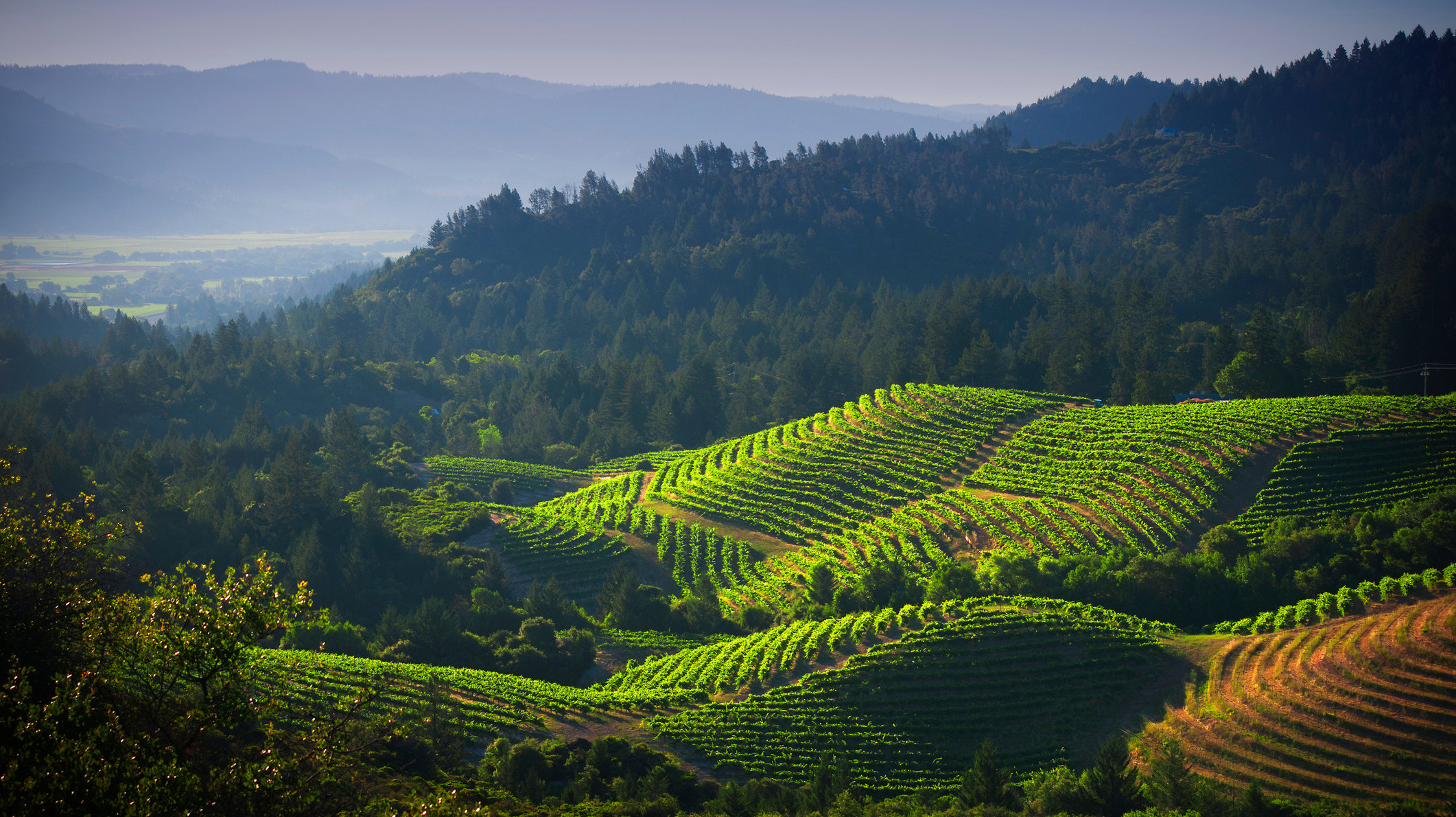What Is Terroir?
As people have become more interested in where their food comes from, the wine term "terroir" has seen a rise in usage and prominence. The problem is that this single French word describes a complicated idea that many people aren't familiar with, and which not everyone agrees about.
In a nutshell, terroir is the term used to signify that when an agricultural product comes from a particular place, it literally tastes of that place, thanks to the specific characteristics of the growing environment. Because of this, seemingly identical products (such as wine grapes) can taste significantly different from one another depending not just on the country in which they are grown, but also the state, region, town, and even the specific plot of land.
If you're wondering how this works, consider all of the factors that can influence the growth and flavor of wine grapes. Elevation, wind, soil composition, exposure to sunlight, seasonal temperatures, humidity, native insects and bacteria, and even area-specific microclimates can all have an impact on viticulture (winegrowing), and factors like these can theoretically apply to other types of agricultural products as well. If two different farms grow the same type of apple, but those farms have different characteristics, those apples may very well taste different from each other. That's terroir in action.
Even animal farmers and fishermen have gotten in on this. In Virginia the Rappahannock River Oyster company uses the term "merroir" to describe how location and environment contribute to the flavor of its oysters, and in Georgia farmers producing an American version of the famed acorn-fed Spanish Ibérico ham worried that, "If the nuts the pigs ate in Georgia were somehow distinct — less abundant, less sweet, varying in the fatty acids and bitter toxins they contained — the differences would be reflected in the meat."
While it's true that there isn't a consensus about the degree to which terroir actually impacts flavor, the term has certainly been enthusiastically embraced, in part because it's an effective marketing tool. Being able to say that a product was grown or raised a certain way, in a certain environment, and thus tastes distinct from (and perhaps better than?) what you can get from somewhere else is a good selling point, and in the case of wine it can help to justify higher prices.
When you hear someone talking about terroir, what they're really saying is that their food or beverage stands out not just because of how it was made, but because of where it's from, and that tasting that product may, in some way, give you a taste of that place.
